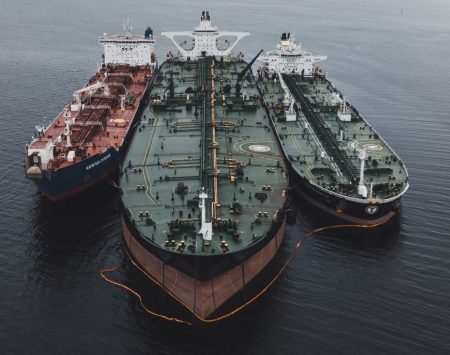In an interview with the Oilprice news outlet this week, Mamdouh Salameh, a prominent oil economist and World Bank energy consultant, said that Western countries’ attempts to limit Russian oil profits without disrupting global supplies or raising prices were failing.
Salameh noted that no major oil-producing country would agree to sell their oil at a rice below the market rate, and that any attempt to implement such a scheme is doomed to constrain supplies and raise prices. He went on to predict the West would have to reverse course and eliminate the price cap at some point.
He said, “The Western price cap on Russian oil exports has already failed and soon will be consigned to a waste bin… Neither OPEC+ countries nor Russia will agree to sell their oil at the cap price of $60 a barrel when the price in the market is above $85… Sellers can easily find buyers for their oil but Western countries can’t, and without oil their economies will come to a standstill. They will be the ultimate losers.”
He went on to note that instead of lowering global oil prices, the price cap has only increased the price of oil globally.
He said, “The proof is that when the cap was launched on 5 December, Brent crude was $73 a barrel but since then it has risen to $85.43 today, a 17% rise.”
Salameh also said that on top of that, the Russian economy appears unlikely to be unaffected at all by the price cap.
He explained, “Russia won’t lose. Its main buyers like China, India, Asian countries… have already ignored the price cap and are continuing to buy Russian crude in increasing volumes… Even if Russia sells 6 million barrels a day of crude oil at today’s Brent price of $85.43, it gets more revenue than selling 7 million barrels a day at $73. Therefore, Russia’s budget won’t lose a single penny. On the contrary… the Russian budget’s surplus could only expand.”
On December 5th, the EU and G7 nations introduced a $60 per barrel price cap on all Russian seaborne crude exports. Under the rules of the price cap, no Russian shipment of seaborne crude oil or other petroleum product will be allowed to purchase insurance, brokerage services, or other support services from any Western nation unless the cargo being carried was sold at or below the $60 per barrel price cap.
For its part, Russia has announced it will not sell oil to any nation which demands it be sold at or beneath the price cap. Russian President Vladimir Putin recently signed an official Presidential decree which specified the Kremlin would ban any sale of petroleum products to any nation which attempted to even mention the price cap in any contract.
Furthermore, Russian officials have indicated as a retaliatory measure, Russia may cut its production of oil by 5%-7% next year, which could further spike global energy prices, setting off a fresh wave of inflation, and requiring even further central bank actions in the West, which could further threaten the global economy.

